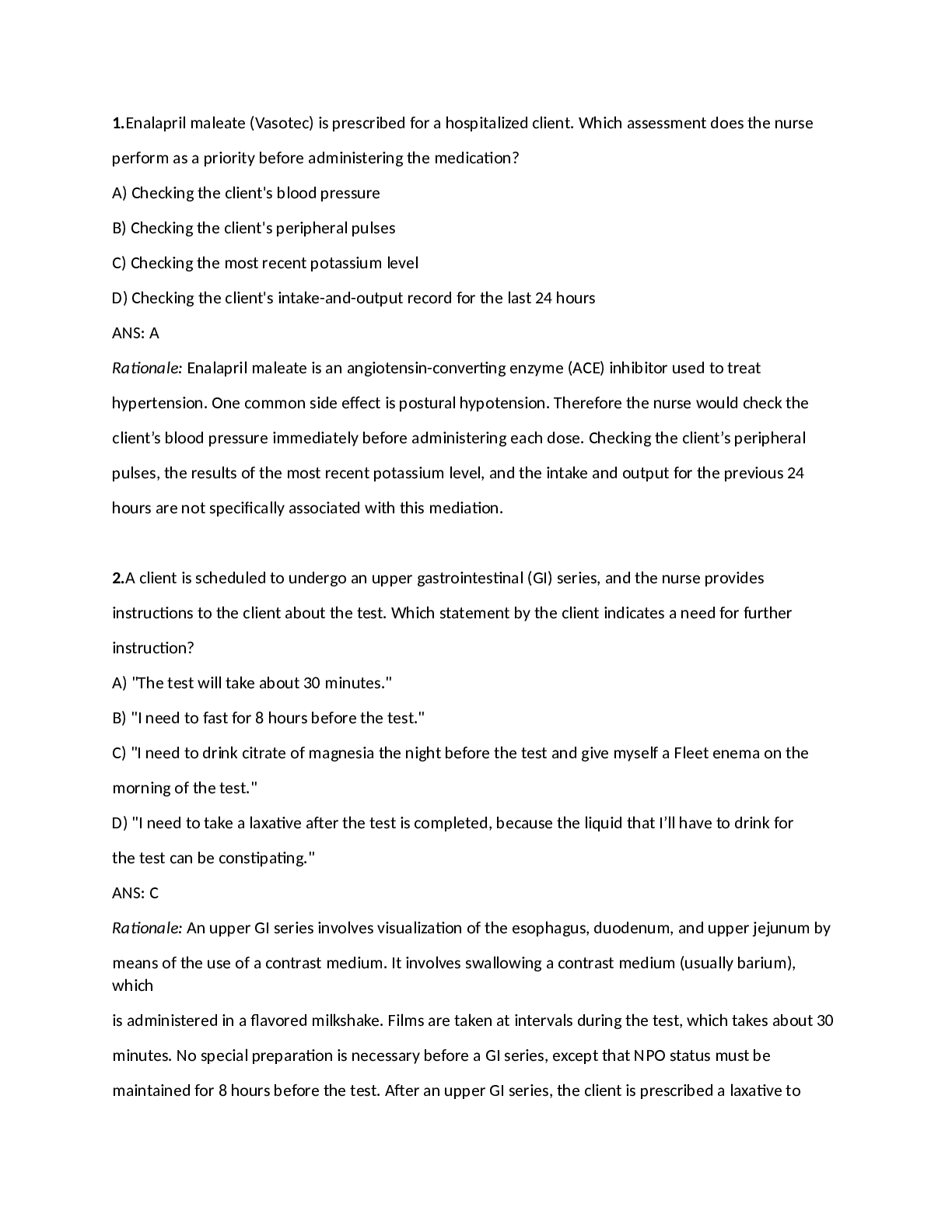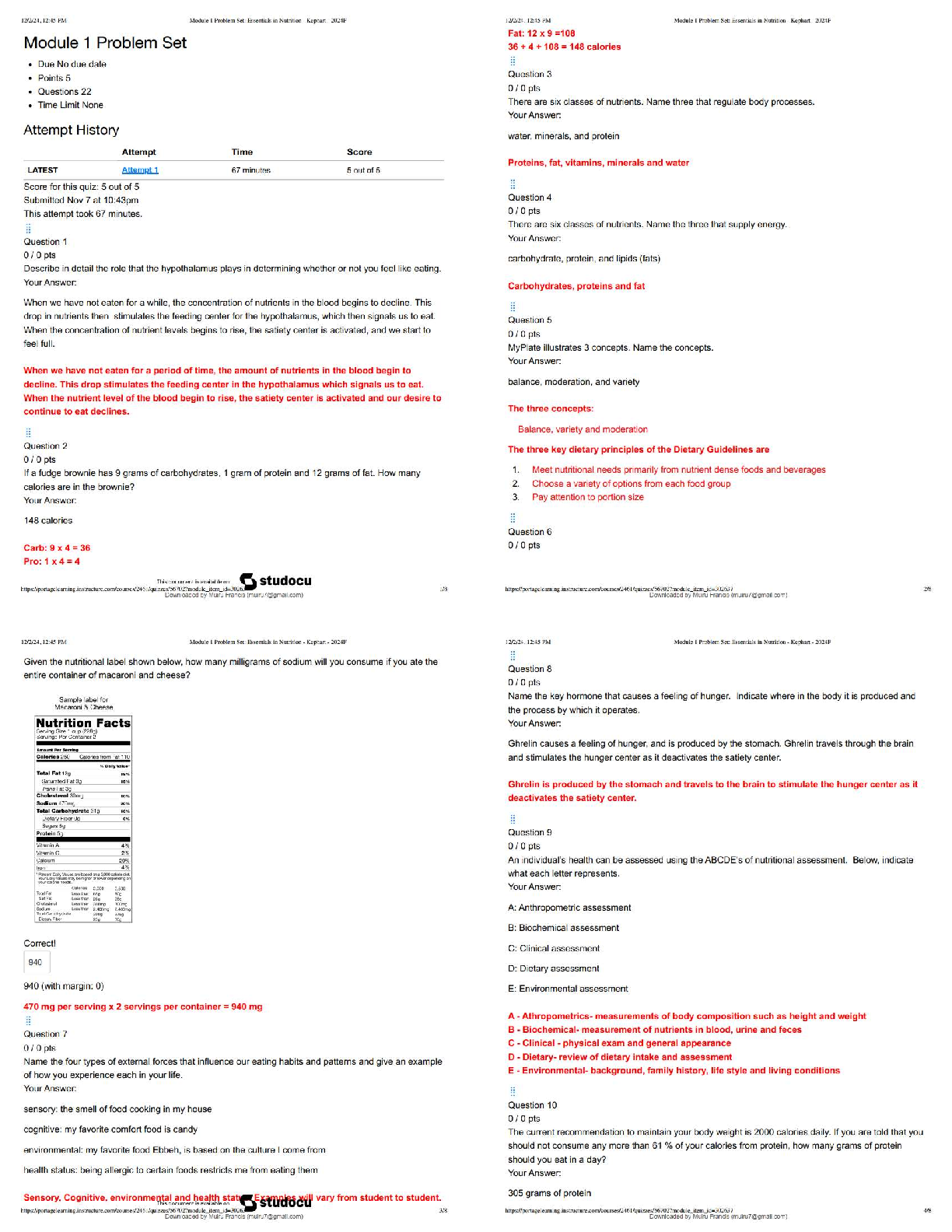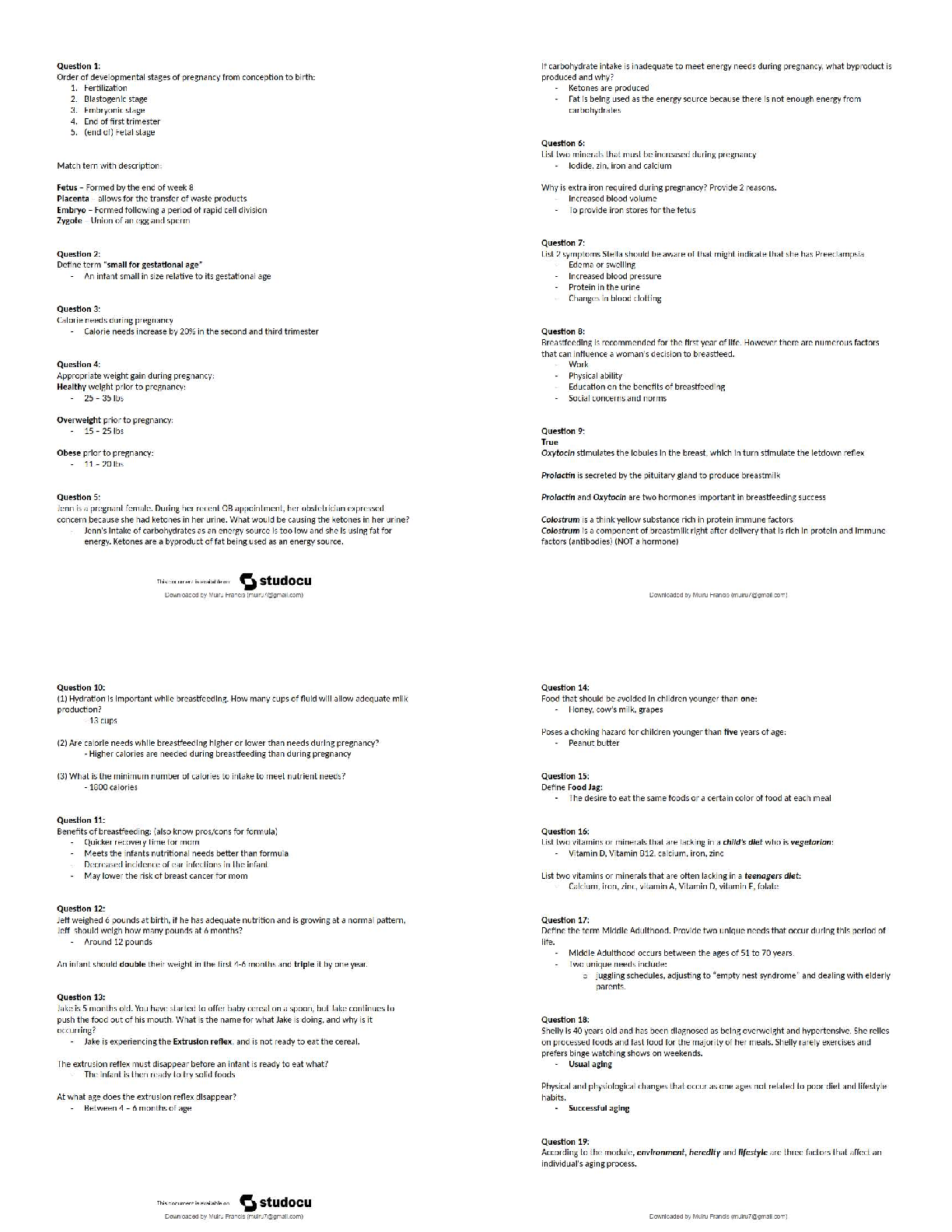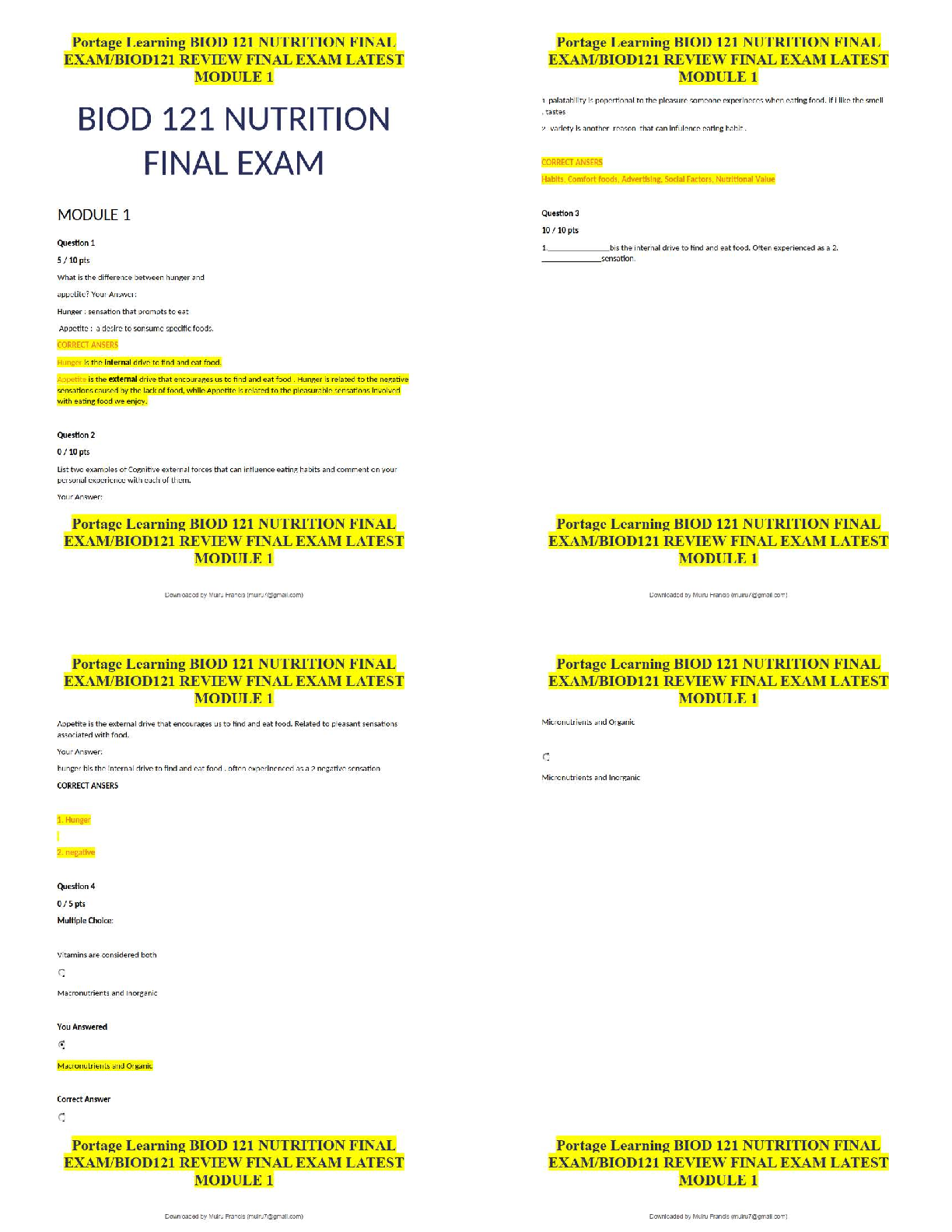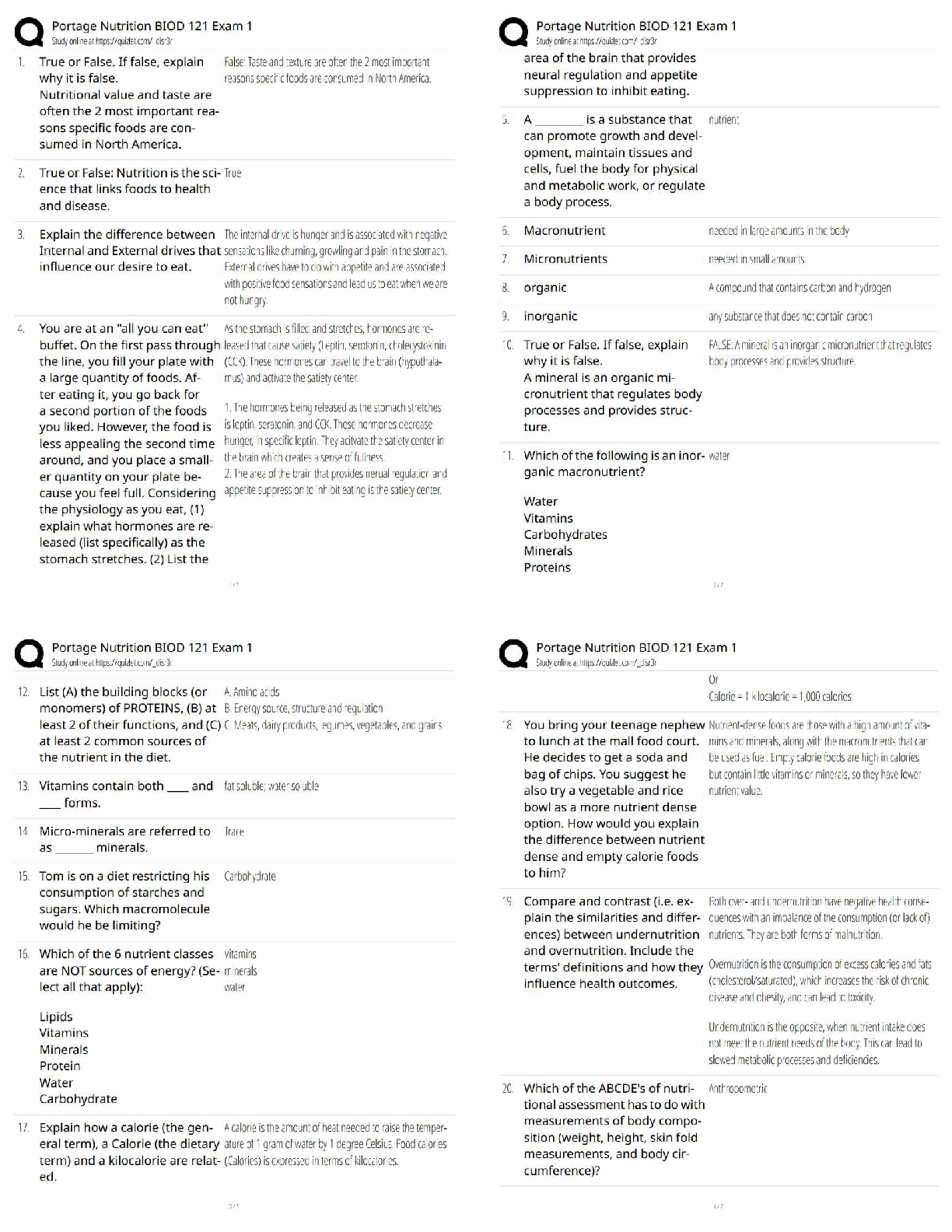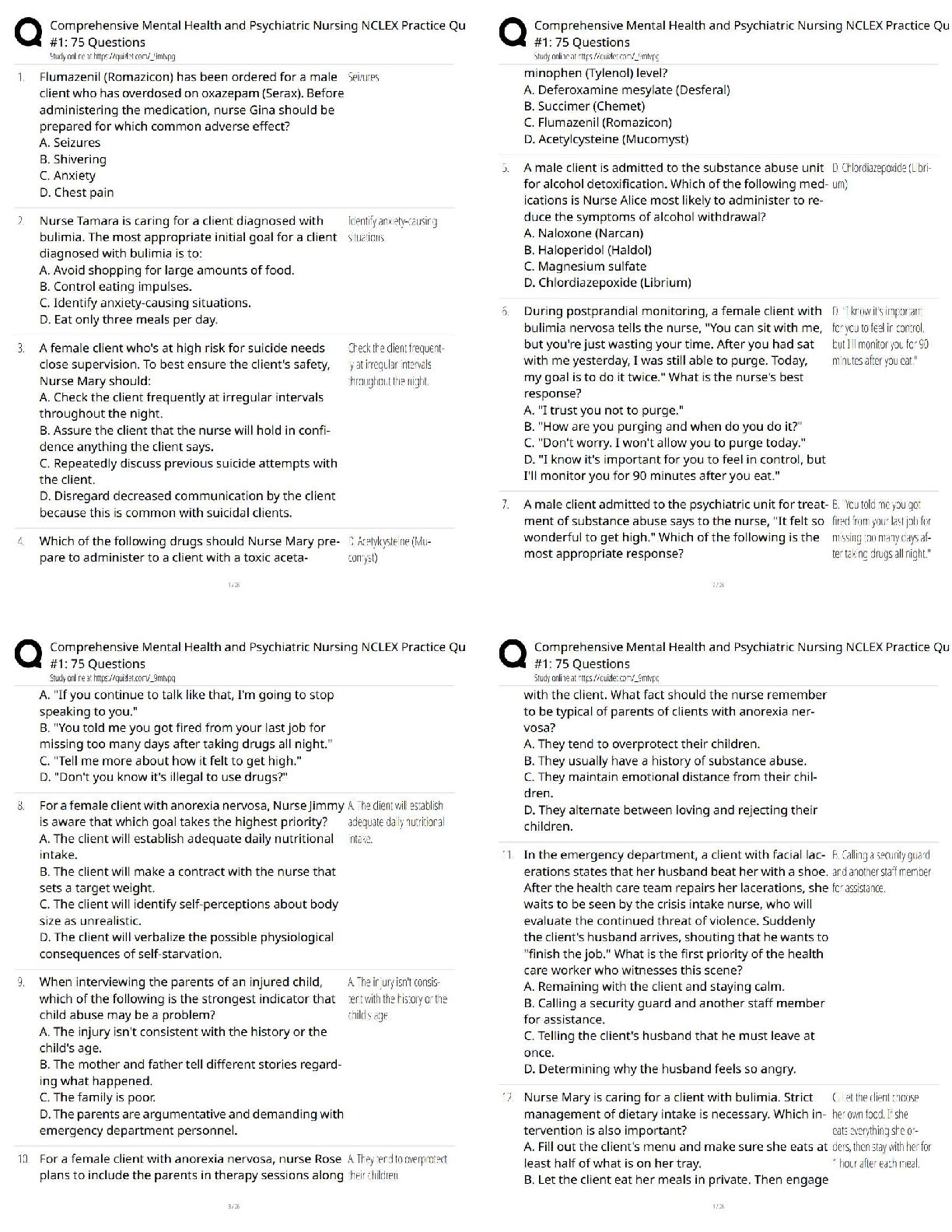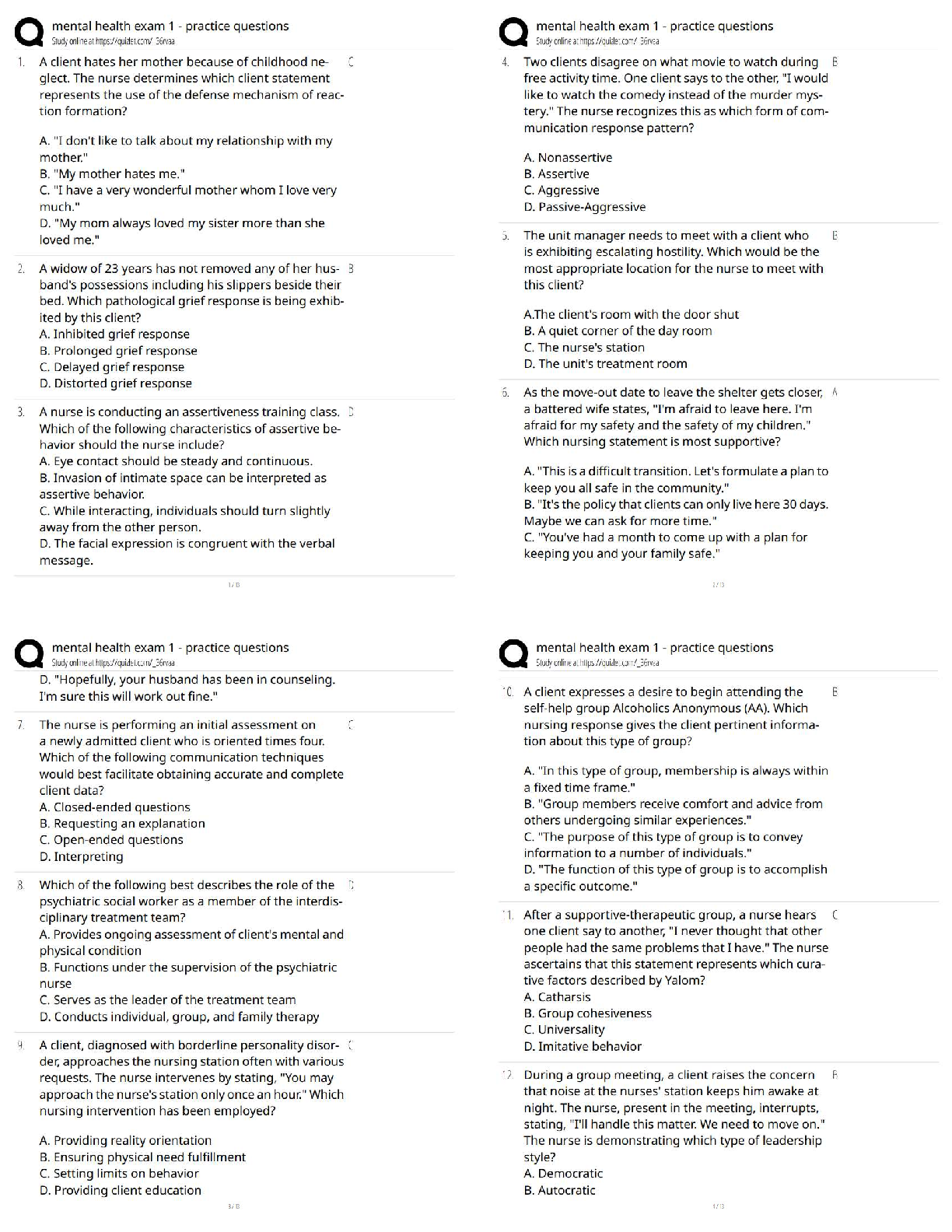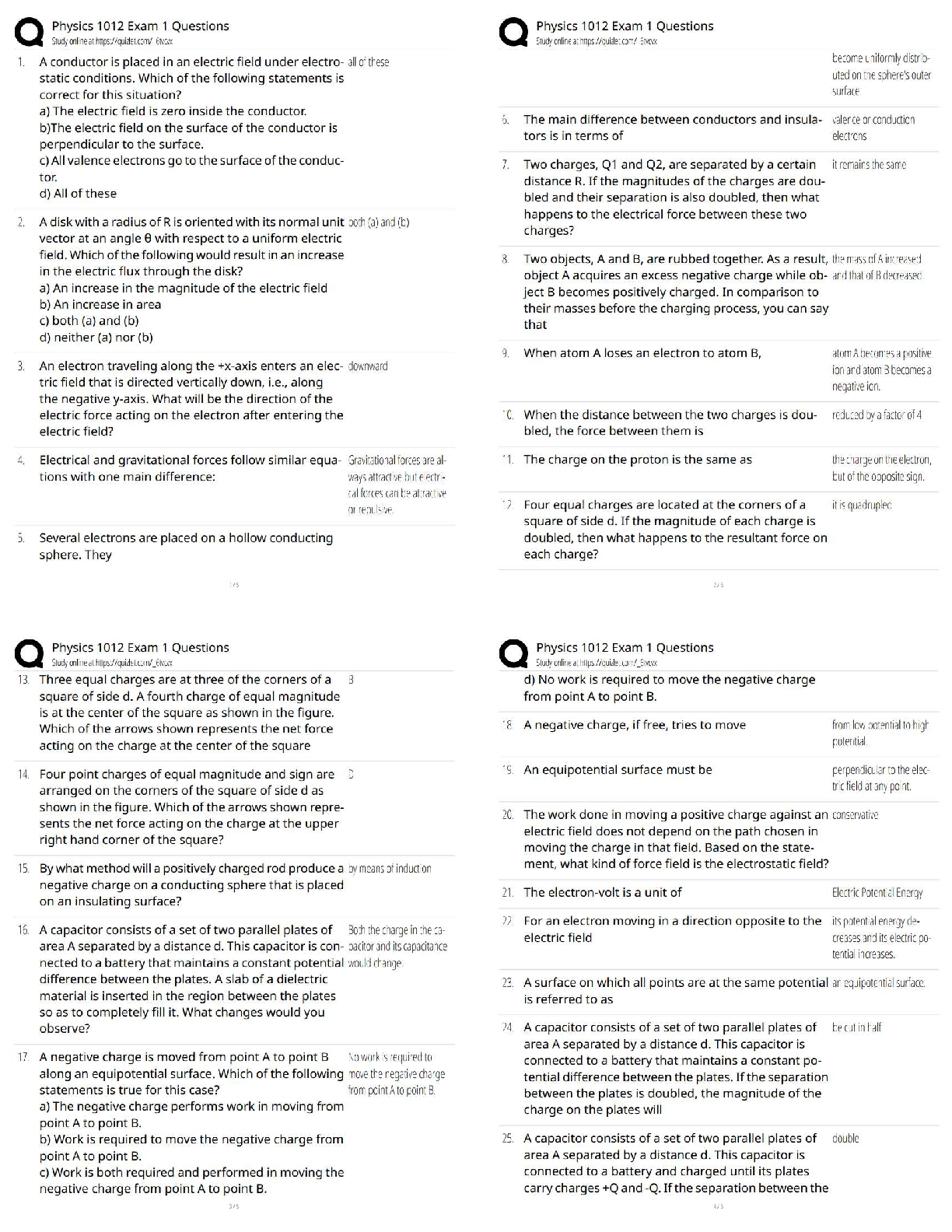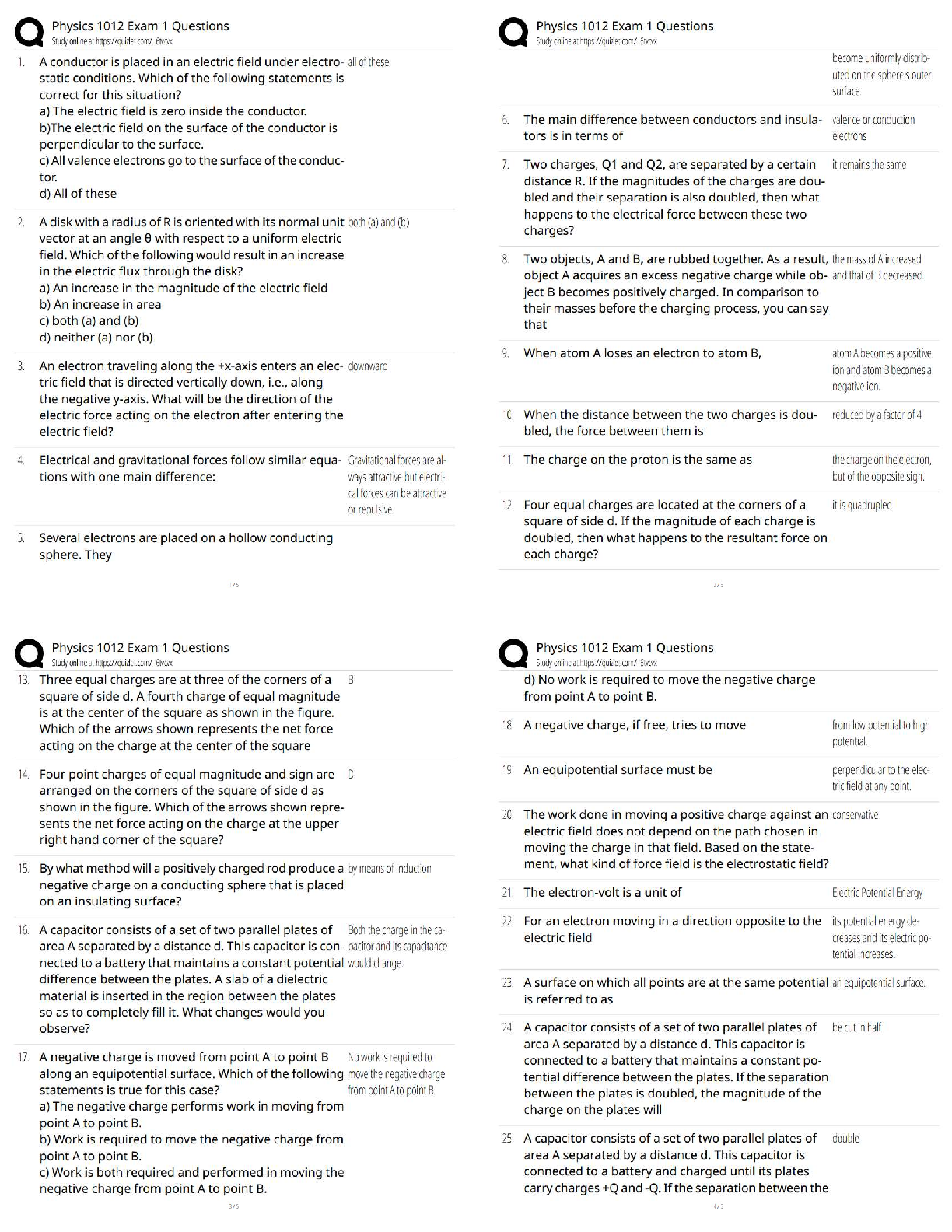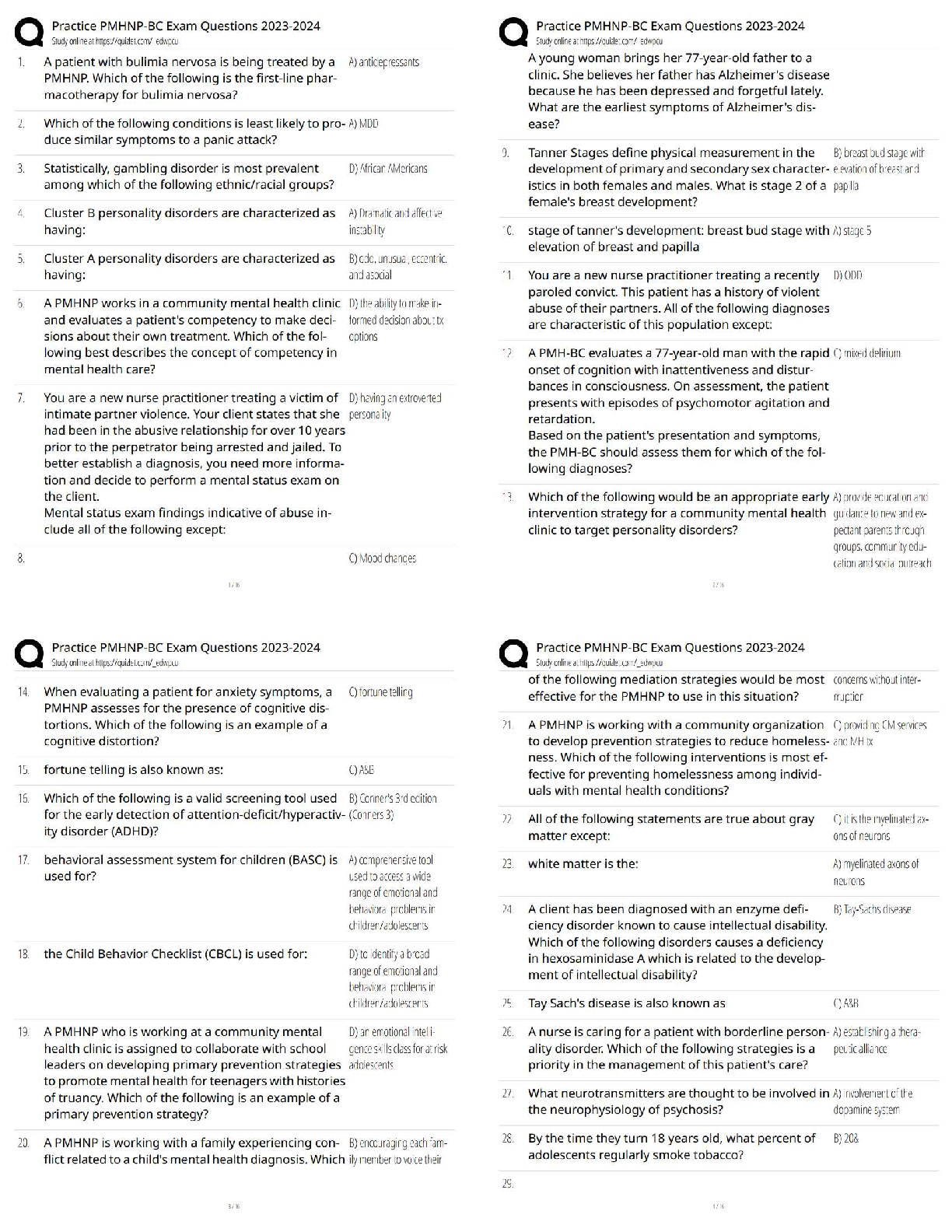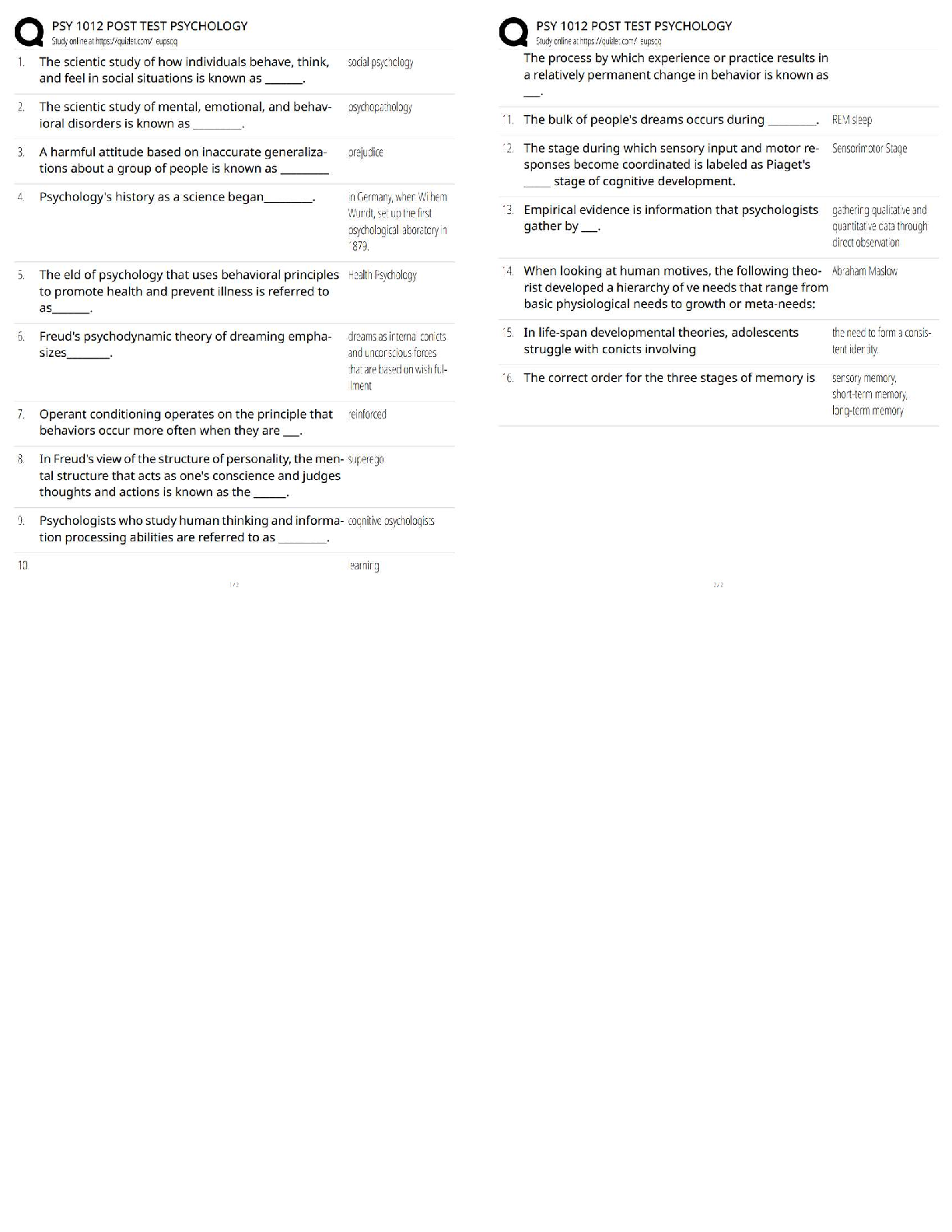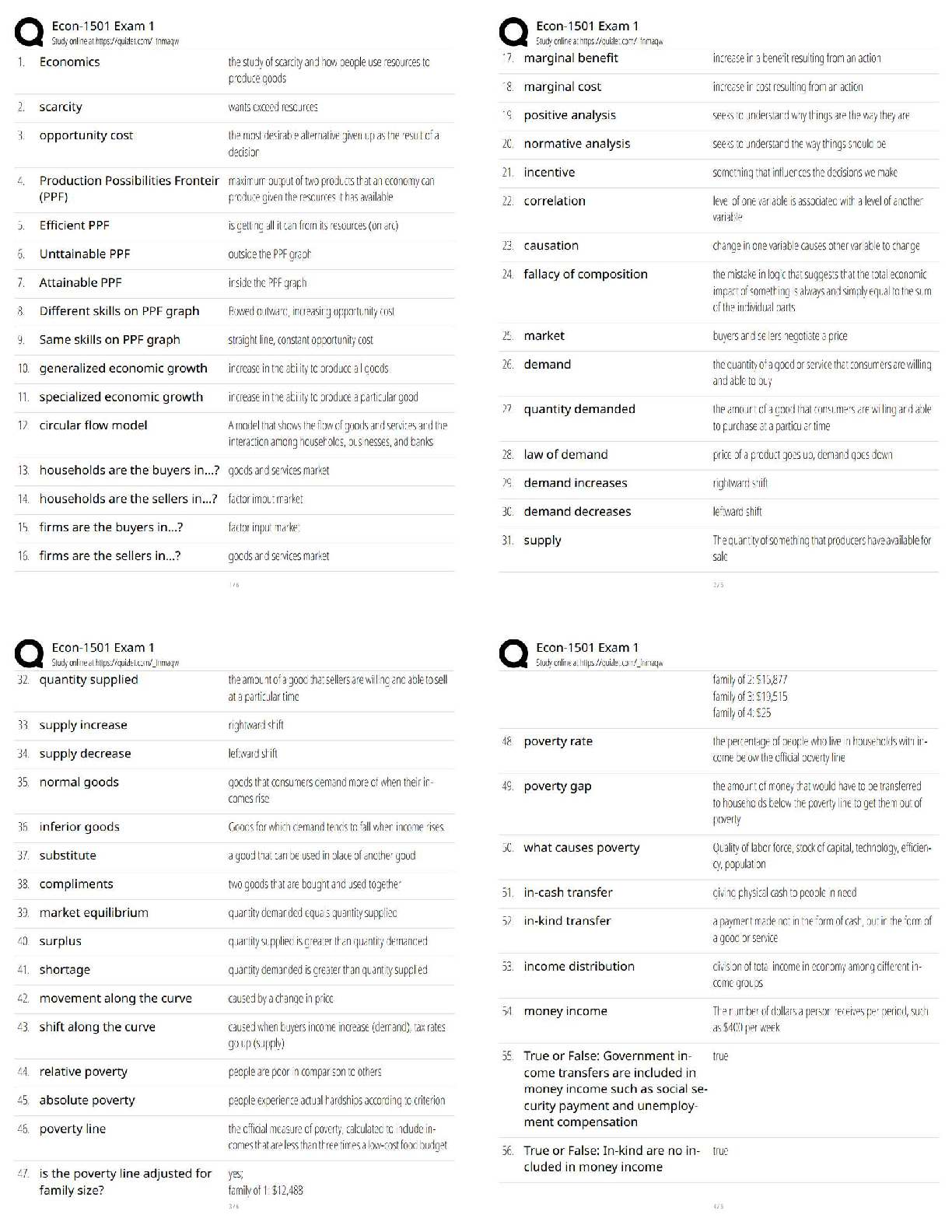Information Technology > QUESTIONS & ANSWERS > Victoria UniversityIT NIT1202Final assignment part 2 ( WITH DETAILED SOLUTIONS ) (All)
Victoria UniversityIT NIT1202Final assignment part 2 ( WITH DETAILED SOLUTIONS )
Document Content and Description Below
Assignment questions for Part 2: Functionality of Memory and Processor 1. Given the following information: Job List: Memory Block List: Job Number Memory Requested Memory Block Memory Block Siz ... e Job A 77K Block 1 900K Job B 900K Block 2 910K Job C 54K Block 3 200K Job D 801K Block 4 300K a. Use the best-fit algorithm to indicate which memory blocks are allocated to each of the four arriving jobs.b. Use the first-fit algorithm to indicate which memory blocks are allocated to each of the four arriving jobs.[2 + 2 = 4 marks] 2. If a program has 571 bytes and will be loaded into page frames of 100 bytes each, and the instruction to be used is at byte 132, answer the following questions: a. How many pages are needed to store the entire job? b. Compute the page number and exact displacement for each of the byte addresses where the data is stored. (Remember that page numbering starts at zero). [2 + 2 = 4 marks]3. Given that main memory is composed of only three-page frames for public use and that a seven-page program (with pages a, b, c, d, e, f, g) that requests pages in the following order: a, c, a, b, a, d, a, c, b, d, e, f a. Using the FIFO page removal algorithm, indicate the movement of the pages into and out of the available page frames (called a page trace analysis) indicating eachpage fault with an asterisk (*). Then compute the failure and success ratios. b. Increase the size of memory so it contains four-page frames for public use. Using the same page requests as above and FIFO, do another page trace analysis and compute the failure and success ratios.c. What general statement can you make from this example? Explain your answer. Answer: FIFO page removal algorithm remove the pages which has been in the for the longest time. This example shows how FIFO works. The high failure rate is because of limited space of memory. [2 + 2 + 2 = 6 marks] 4. The table shown in part b) contains details of a set of processes that need to be scheduled by an operating system. [3+3=6 marks] a) Draw a Gantt chart to illustrate the order that these processes will run, assuming the scheduling algorithm, Shortest Remaining Time Next.b) Be sure to complete the Wait and Turnaround columns for this set of processes, including averages. Process Arrival time Burst (CPU time required) Wait Turnaround time 1 0 9 04 13 2 2 4 00 04 3 5 10 19 294 6 8 10 18 5 10 3 03 06 Average 5. Given the following information: Job Arrival Time CPU Cycle A 0 15 B 2 2 C 3 14 D 6 10 E 9 1 Calculate the start time and finish time for each of the five jobs using each of the following scheduling algorithms (note: show how you arrive at the answer using Gantt chart). a. SJN b. Round robin (using a time quantum of 5, but ignore the time required for context switching and natural wait) Job Arrival Time CPU Cycle SJN RR A 0 15 Start: 0 Finish: 15 Start: 0 Finish: 33 B 2 2 Start: 15 Finish: 17 Start: 5 Finish: 7C 3 14 Start: 17 Finish: 31 Start: 7 Finish: 42 D 6 10 Start: 31 Finish: 41 Start: 17 Finish: 38 E 9 1 Start: 41 Finish: 42 Start: 22 Finish: 23 [2.5*2=5 marks] [Show More]
Last updated: 3 years ago
Preview 1 out of 11 pages
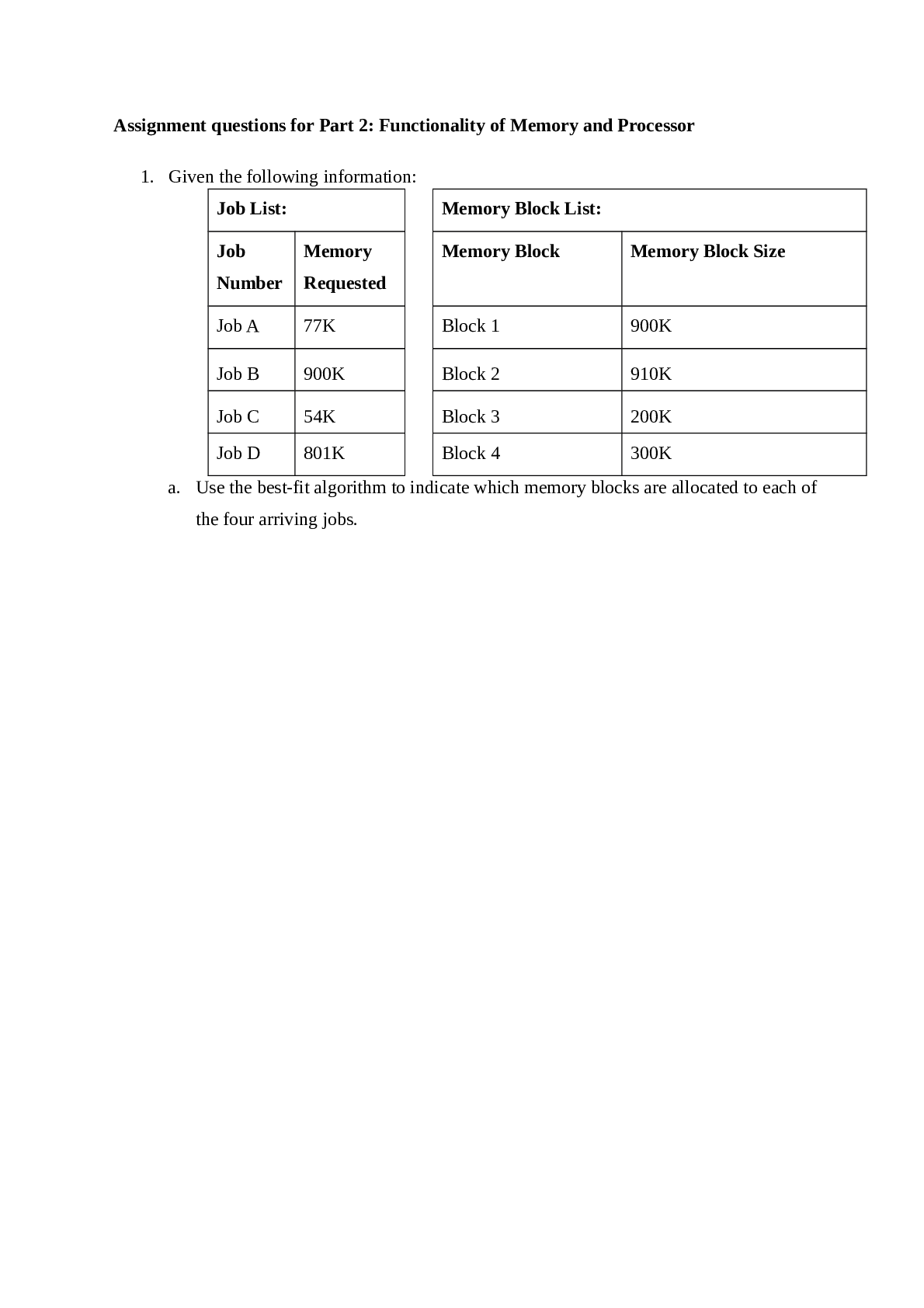
Buy this document to get the full access instantly
Instant Download Access after purchase
Buy NowInstant download
We Accept:

Reviews( 0 )
$11.00
Can't find what you want? Try our AI powered Search
Document information
Connected school, study & course
About the document
Uploaded On
Jun 10, 2021
Number of pages
11
Written in
All
Additional information
This document has been written for:
Uploaded
Jun 10, 2021
Downloads
0
Views
46




